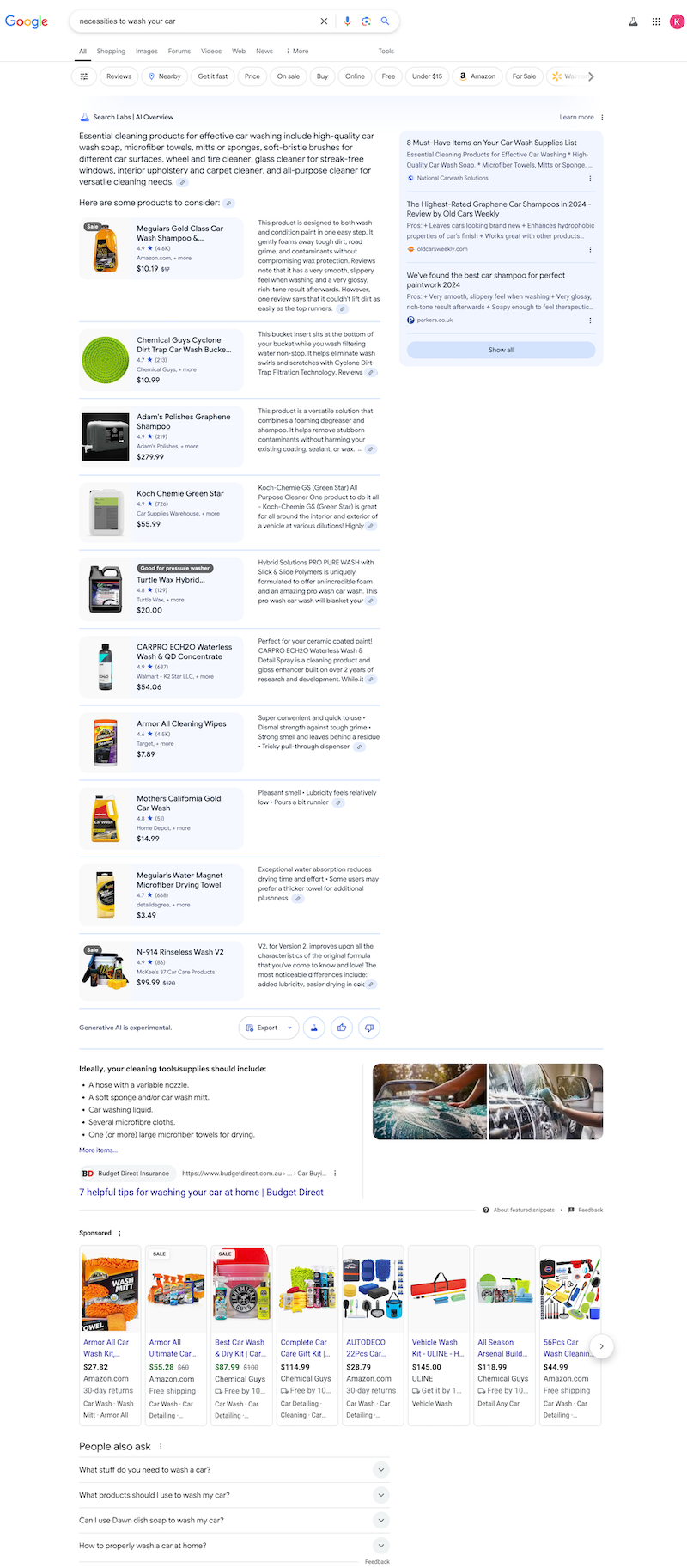Introduction: The Generative AI Revolution
Since the launch of ChatGPT, generative AI has become a must-have for every major tech company. The big tech and e-commerce giants—Google, Microsoft, Meta, Amazon, Baidu, Tencent, and others—compete fiercely to win the AI race. Massive investments in generative artificial intelligence are already profoundly impacting the business world. This shift has also had a significant effect on search. Microsoft was the first company to integrate a generative AI experience into Bing in February 2023, with the launch of its AI-powered chatbot, Microsoft Copilot.
Immediately, alarm bells started ringing at Google. The company, which has dominated the search engine market since its founding in 1998, saw this as a direct threat to its position as the king of search. For decades, the search engine landscape remained relatively static, with companies competing mainly to improve user experience and make search more user-friendly. But with the rise of generative AI, the game has changed. The adoption of generative AI applications has been nothing short of rapid. By January 2024, ChatGPT alone had reached 180 million monthly active users. According to a study by Salesforce, 45% of the US population will use generative AI in 2024. Google has felt the pressure to adapt quickly, hence the rush to launch Bard (now Gemini), Google’s generative AI platform, in March 2023. Google’s integration of AI into its search strategy is a direct response to this transformative shift and the changing habits of users who increasingly turn to AI for their daily needs, highlighting the profound impact of this technology on our daily lives.
The Impact of AI on Search Behavior
Because generative AI can provide direct, conversational answers to complex queries, users no longer have to shift through multiple search results to find what they need. Instead, AI chatbots help them get straight to the point. This has led to speculation about a potential decline in search engine use; Gartner predicts a 25% drop in search engine volume by 2026 because of chatbots. Google is trying to stay relevant in this rapidly changing landscape. Google launched its AI overviews in May of 2024 in the United States. Search will be adjusted by providing AI overviews, advanced reasoning, and planning capabilities, allowing users to plan travel or recipes.
Google’s Dilemma: Adapting to AI While Preserving Its Core Business
In a way, it might seem contradictory, even cannibalistic, that Google—whose primary revenue comes from search and people discovering content—would now incorporate tools that reduce the need for scrolling and searching. By integrating AI, Google risks cutting into its core business, where users interact with search results and ads. After all, if AI gives users direct answers without needing them to browse through pages of results, it seems like Google could be hurting its own business. But Google’s move makes sense if you look at the bigger picture. The rise of generative AI has shifted user expectations. People now want fast, conversational responses to their questions. Microsoft saw this early on when they integrated AI into Bing, and Google had to respond. Ignoring AI would have been a much more significant risk, as it could have led to losing market share to competitors embracing these new technologies. In a sense, Google had no choice but to adapt. While it might reduce traditional search interactions, AI opens up new opportunities for Google. They can still monetize AI-powered responses or find ways to include ads in AI overviews. Google has already started including ads in AI searches.
The impact of AI overviews on organic Traffic and SEO.
According to Search Engine Land, Google’s AI overviews significantly differed from the top organic search results in December 2023. However, this year, the gap between AI-generated overviews and organic results has started to close, but there remains some uncertainty over which results AI chooses to highlight. This highlights an ongoing tension between AI-driven results and traditional SEO.
An example query, “tips to buy running shoes,” confirms the research from Search Engine Land. The AI overview sentences and corresponding links on the right only show one of the top-view organic results. The number one result in the AI overview is a link to the specific page made by Asics about running shoes. The second link is to a company named Road Runner Sports, which has terrible reviews on Yelp and Trustpilot, and many complaints were filed against it with the Better Business Bureau. Another link leads visitors to Spooky Nook Sports, a sports complex. There is also a link to Runners Need, a UK-based running shoe store with a Trustpilot score of only 3.8 percent. Moreover, there are links to Medical News Today, a reputable Medical News source, and orthopedic centers around the United States. Below the AI overview, the top five organic results show links to Runners World, Nike, and REI (the only links also demonstrated in the AI overview), the New York Times, Quora, and Reddit.

The SEO Industry and Google’s Deliberate Strategy
Google doesn’t provide guidelines to increase businesses’ chances of being included in AI overviews. According to Google’s Search Central guidelines, content creators must follow regular SEO practices to be visible in AI overviews. This could suggest that Google is trying to avoid alarming advertisers and users about this significant shift in search results, as they may worry it could lead to a mass exodus from Google Search, which would severely impact its core business. It could also indicate that Google is working hard to close the gap between AI overviews and organic search results. The SEO industry, worth over $80 billion, has been built over the past 25 years on Google’s search algorithms. Sudden changes to those algorithms in favor of AI could destabilize an entire ecosystem. By maintaining a gradual approach to AI, Google is balancing innovation with the need to protect its core business, all while ensuring the SEO industry has time to adapt.
The Delicate Balance: Ads in AI-Powered Search
The results of a search like “necessities to wash your car” now include AI-generated overviews along with shopping ads. Currently, Google doesn’t allow advertisers to place ads in these AI overviews, though it wouldn’t be surprising if they did shortly. One of the potential pitfalls of including shopping ads in many generative AI overviews is the risk of eroding consumer trust. If users feel like the AI results are too ad-heavy or biased, they might start to see the search overviews as less reliable. This could push consumers to avoid Google altogether and instead rely on more advanced multimodal chatbots, which may offer cleaner, ad-free experiences. It’s a delicate balance: if AI overviews feel too commercialized, it could backfire, making users less inclined to use Google’s search and more drawn to other AI tools that offer a more authentic, unbiased interaction.


